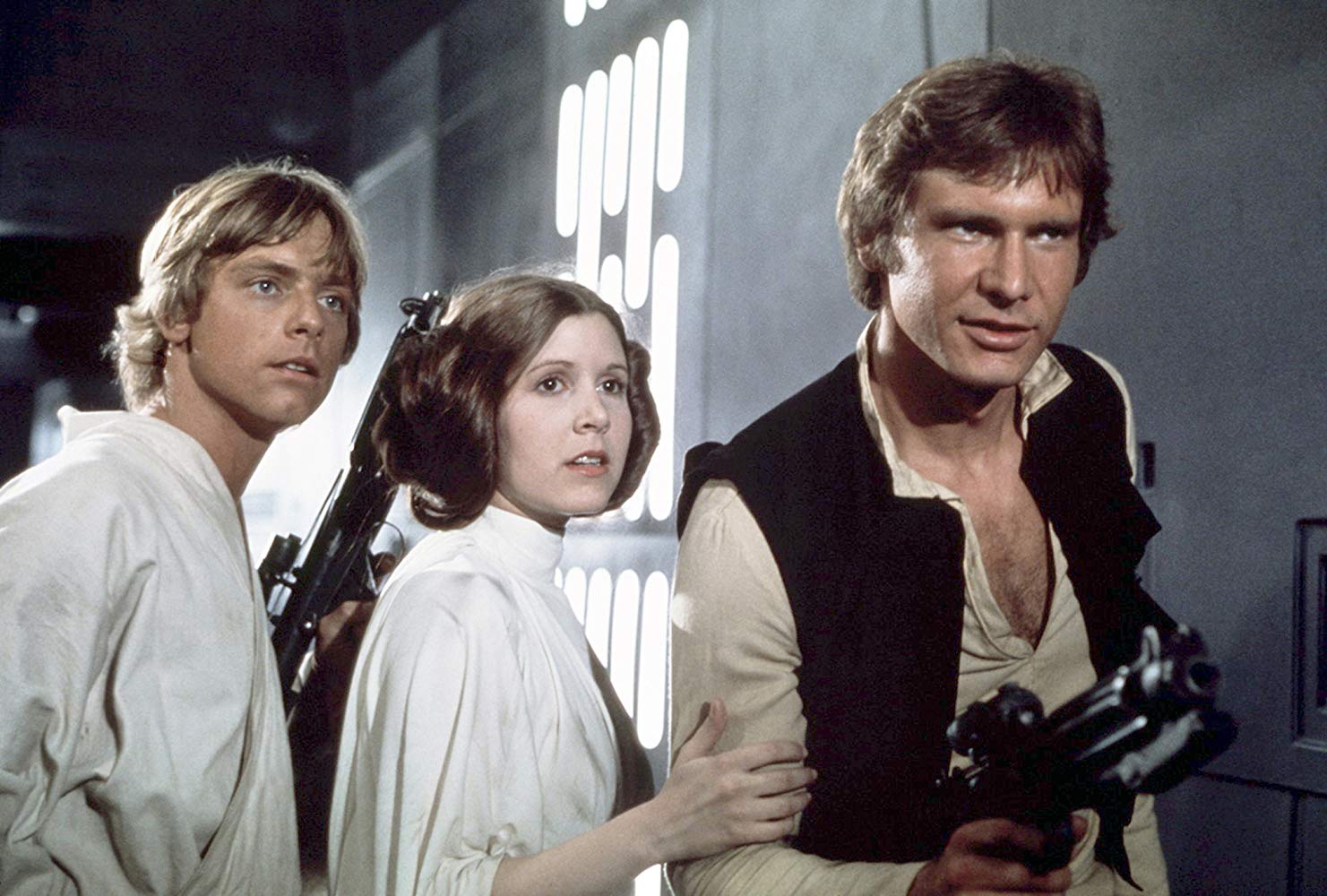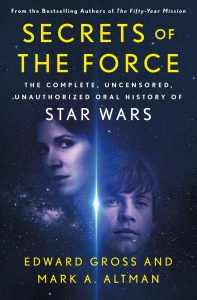
Edward Gross and Mark A. Altman’s Secrets of the Force: The Complete, Uncensored, Unauthorized Oral History of Star Wars is a must-own.

If Apocalypse Now had turned out differently, Star Wars might never have seen the light of day. What an alternate universe this would be. Instead, Lucas’s idea for a Vietnam war film becomes something completely different. Not being able to acquire the rights to Flash Gordon would also alter his plans. Lucas would end up turning to science fiction fantasy to make one of the greatest space Westerns of all time. The rest is history and cinema is all the better for it.
Jaws may have introduced the concept of blockbusters. However, Star Wars would really change the game. Outside of the Planet of the Apes, sequels weren’t really much of a thing in Hollywood. Star Wars comes around and does so much damage at the box office that a sequel becomes inevitable. Lucas would finance it himself thanks to betting on merchandising and taking the sequel rights with him upon signing with Fox. His contract may just be one of the best in history. Lucas becomes an innovator at the game with building up his own visual effects house, Industrial Light & Magic. The filmmaker would also start up Skywalker Sound and bring all the sound under one roof at Skywalker Ranch.
There came a time when nobody thought the prequels would happen. But everything changed in 1993 with the release of Jurassic Park. The world of special effects finally caught up with Lucas’s vision. He could finally make the prequels but first, he would make changes to the original trilogy and align it with his vision. The other thing is that after his experiences making The Empire Strikes Back and Return of the Jedi, nobody else would direct the films. This process would begin in 1994.
Having read George Lucas: A Life by Brian Jay Jones and watched Empire of Dreams, much of the Star Wars history is familiar territory. That said, it’s a fresh approach to read this history in the interview format. The book is light on comments from Harrison Ford but there’s plenty of Mark Hamill and some of Carrie Fisher to go around. I love this franchise so much that I can never get enough of reading about it. Toys, books, comics, you name it. Altman and Gross make sure no page gets unturned. Well, almost but mostly everything. But still, there is so much commentary over the course of 551 pages.
The anthology films hardly get much mentions in the book. They basically play second fiddle to the sequel trilogy (unlike the many commentators in the book, I liked the trilogy!). I know Solo: A Star Wars Story was largely considered a failure but it’s no excuse to not discuss either Solo or Rogue One: A Star Wars Story in depth. Rogue One is the best of the prequel or anthology films to date.
The television series do get discussed during the last chapter. Yes, The Bad Batch gets a mention, So, too, does Kenobi and some of the upcoming live-action television series. It’s hard to believe that at one point, a live-action series was being planned and set to explore the Star Wars underworld. Nothing ever came of it but combine the Disney acquisition and the rise of streaming and the rest is history. But before The Mandalorian became a hit series, there was The Clone Wars. Lucas brought in Dave Filoni and together, they would visit the period between Attack of the Clones and Revenge of the Sith. While the series faced a premature cancelation, Filoni finally got to finish the series on Disney+ in 2020. The prequels would find redemption by way of The Clone Wars. Ultimately, The Clone Wars enhances the prequels.
Thanks to the second season of The Mandalorian and references in films such as Solo, The Clone Wars is becoming required viewing. Imagine the confusion upon seeing Darth Maul in Solo! Star Wars Rebels, too, especially with the upcoming Ahsoka Tano series. It’ll be so fun to watch a live-action sequel to Star Wars Rebels! Thrawn is one of the greatest villains in Star Wars history and the fact that we’re likely to see him soon enough on screen should lead people to revisit the many books written by Timothy Zahn.
But I’d be remiss if I didn’t comment about Glen Oliver’s comment:
There often doesn’t seem to be an understanding, either tacit or otherwise, that animated material like The Clone Wars, Rebels, and Resistance are sanctioned, canonical, and even referenced at times by their live-action counterparts. There’s a lot of remarkable Star Wars being missed and misunderstood, largely because I don’t think the animated series have been properly framed by the Powers That Be. I also think animation still, to a large degree, carries with it an unjust stigma of frivolity and an assumption of childishness. Which should be factored in when positioning the importance of their storytelling to the overall franchise.
While I regret that I didn’t catch The Clone Wars live in its initial run, I made sure to watch Star Wars Rebels and Resistance when they aired. The Clone Wars is a requirement for understanding Star Wars. There is no ifs, ands, or buts about this. I only wish my father would be on the same page when it comes to animation. Animation is not just for children!
My biggest criticism about the book is that this book is really lacking female commentators. I mean, you obviously have some female talent and crew when it comes to the films. But in terms of pop culture commentators, the male commentators dominate the conversation. By my count, film historian Jeanine Basinger is the only such commentator in the book. There absolutely needs to be more women. This is unfortunate because I’m sure there is no shortage of women available to talk about this amazing franchise–myself included. Regardless, you cannot call yourself a Star Wars fan and not own Secrets of the Force. Secrets of the Force is a must-own for your Star Wars Collection!





